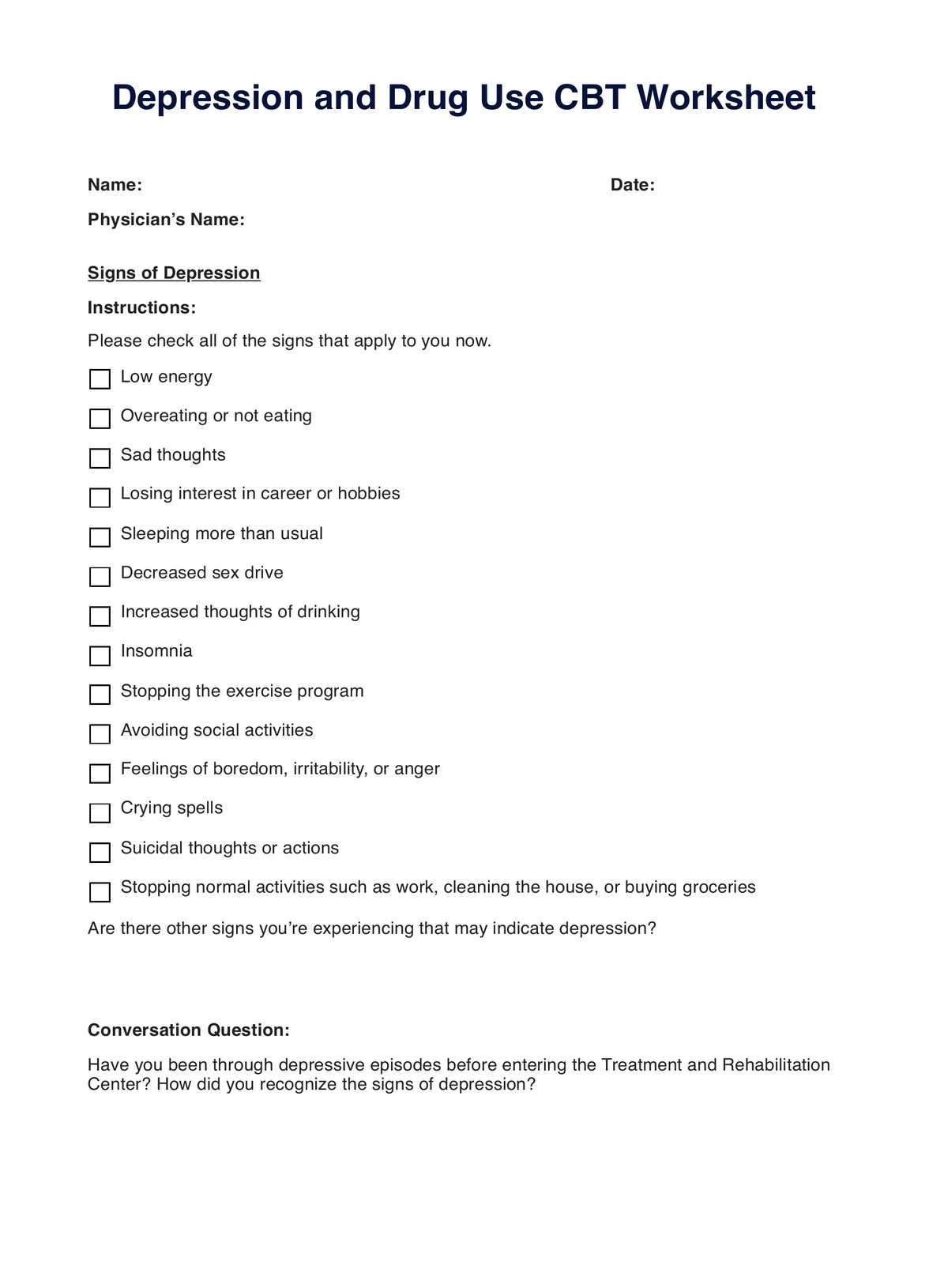It can take at least 30 minutes for a client to accomplish the Depression and Drug Use CBT Worksheet. However, completing the exercise will take longer, given that you and your client must discuss their answers in the second half of the worksheet.

Depression and Drug Use CBT Worksheet
Give your patient this Depression and Drug Use CBT Worksheet to understand signs of depression from substance withdrawal and identify effective coping strategies.
Use Template
Depression and Drug Use CBT Worksheet Template
Commonly asked questions
The Depression and Drug Use CBT Worksheet is best used when the client is exhibiting symptoms of depression due to drug withdrawal and 2-4 months into their recovery period to assess the effectiveness of the treatment.
CBT-certified practitioners can use the Depression and Drug Use CBT Worksheet on clients who show symptoms of depression precisely because of drug withdrawal, not because they are clinically depressed.
EHR and practice management software
Get started for free
*No credit card required
Free
$0/usd
Unlimited clients
Telehealth
1GB of storage
Client portal text
Automated billing and online payments











